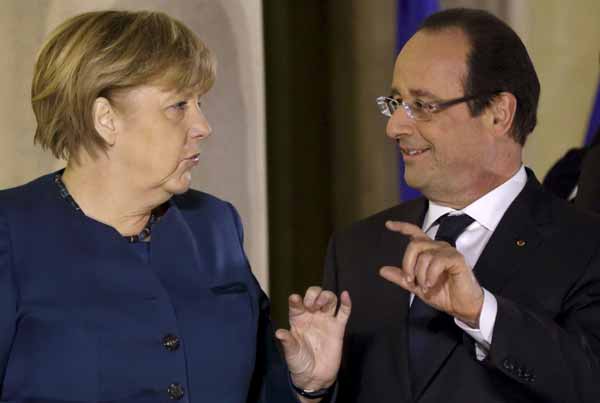 |
|
French President Francois Hollande speaks with German Chancellor Angela Merkel as she arrives at the Elysee Palace in Paris December 18, 2013. [Photo/Agencies]
|
BERLIN - Chancellor Angela Merkel vowed to defend German jobs as the European Union's executive launched an investigation Wednesday into whether German companies that use large amounts of electricity get unfair discounts.
Hundreds of German companies have been largely exempt from a surcharge on electricity bills used to promote renewable energy sources such as solar and wind, which other consumers pay.
Last year alone the savings amounted to about 4 billion euros ($5.5 billion) for the companies, the Economy Ministry said.
The European Commission said it is opening an investigation about whether the discounts violate EU rules on state aid.
Merkel told lawmakers in Berlin that her government will "make clear Europe won't become stronger by endangering jobs in Germany." She said Germany will tell Brussels that "Germany wants to remain a strong industrial location. We need competitive companies."
Merkel's new government, which took office Tuesday, plans to reform the surcharge system as it pursues a massive program to switch from nuclear to renewable energy.
Generators of solar, wind and other renewable energies are guaranteed fixed income. Consumers pay a subsidy to make up the difference between that and market prices, which have fallen. Network operators have said the cost to Germans of subsidizing renewable energy is set to rise nearly 20 percent next year.
Ulrich Grillo, the head of the Federation of German Industries, maintained that scrapping discounts for heavy industrial users of electricity "would mean the immediate end for many companies and thousands of jobs."
Economy and Energy Minister Sigmar Gabriel said he sees no grounds in competition law for the European Commission to intervene, arguing that it is "beginning to ... interfere in national energy policy."

